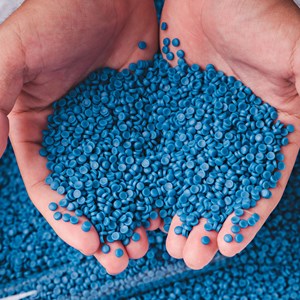NEWS

A new CEN Workshop is being planned which will complement the activities of the EU Research project 'Soil O-live'. This initiative focuses on the soil biodiversity and functionality of Mediterranean olive groves, seeking to provide a holistic analysis of the influence of land management on olive oil quality and safety.

A new CEN Workshop is being planned which is an important part of the activities of the Horizon Europe Research project “BOOST-IN”. This initiative focuses on providing innovative solutions to meet the water scarcity and quality issues in Europe. Its goal is to identify and transfer Water Circular Economy Solutions (WACES) to improve water cycle management.

A new CEN Workshop is being planned which will complement the activities of the EU project 'NANOBLOC'. This project provides a platform for nanocoatings which enables a new generation of antimicrobial and antiviral products to be developed to protect the health of citizens.

A new CEN Workshop is being planned which will complement the activities of the EU project 'SURPASS'. The aim of this project is to lead the transition towards more safe, sustainable and recyclable by design (SSRbD) polymeric materials

A new CEN Workshop is being planned as part of the activities of the EU project 'BIOUPTAKE'. The aim of this project is to ensure a sustainable uptake of bioplastic composites in the European manufacturing industry.

A new CEN Workshop is being established to build upon the innovative outcomes of the R&I project BiSCUIT, funded under the Horizon Europe programme. The project focuses on the validation of a dynamic and biomimetic blood-brain barrier model, integrating sensing features to allow a real-time evaluation of barrier formation and integrity maintenance.

A new CEN Workshop is being planned as part of the activities of the EU project “VeriFish”. The aim of this project is help consumers by equipping them with the tools to make informed decisions about the seafood they buy.

Launch of the CEN Workshop 'AMBIANCE - Advanced Manufacturing of Biobased products for urban outdoor applications through iNnovative CharactErisation, digital technologies, and circular approach'

A new CEN Workshop is being planned which will complement the activities of the EU project 'ETERNAL'. The aim of this project is to contribute to the safe and sustainable development of pharmaceutical manufacture, use and disposal.

On Thursday 15 May 2025, CEN/TC 444 organizes a hybrid workshop in Prague and virtually during its annual meeting week to launch the work of WG 8, Assessment and it invites experts and policy makers to join our mission to standardize assessment methods for the environmental characterization of soil, solid and liquid waste, biowaste, and sludge.